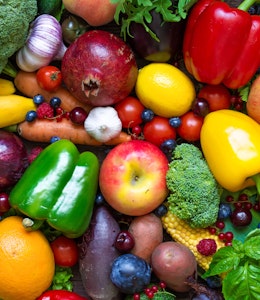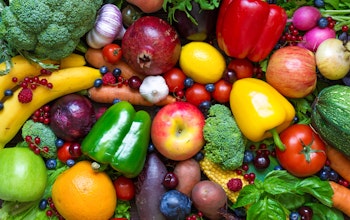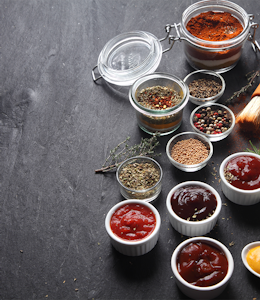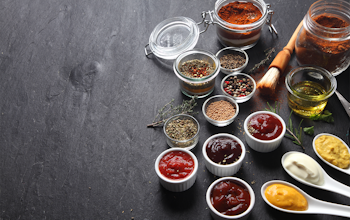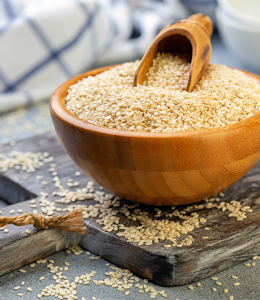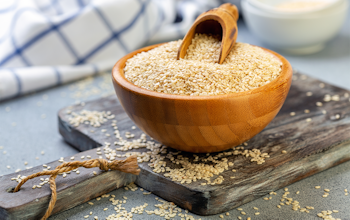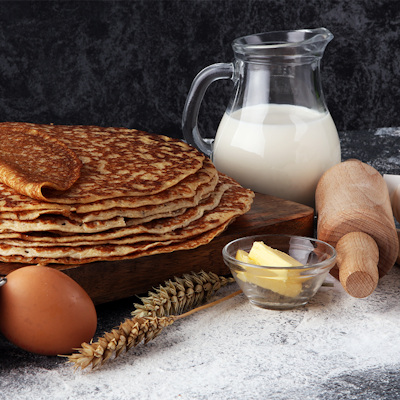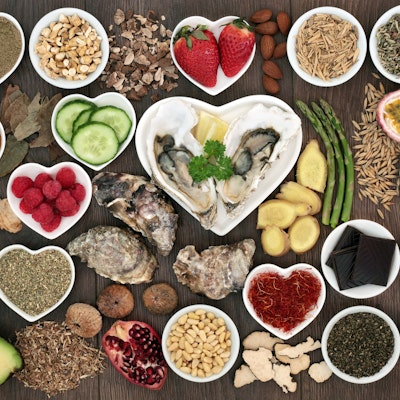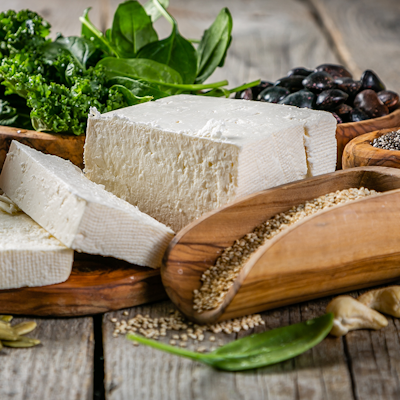Hummus ingredients, top tips and more…
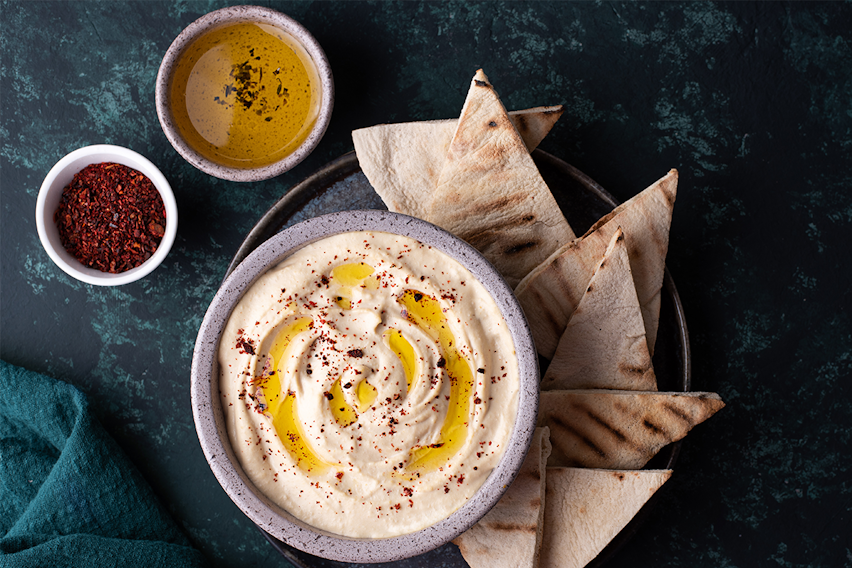
Is hummus healthy? It’s certainly delicious, and over the past decade or so has become one of the nation’s favourite dips, with many different varieties available. And with that in mind, it’s useful to know whether hummus contains allergens, or if it’s suitable for diet plans such as veganism. That’s why we’re rounding up everything you need to know about hummus (and some top tips for making it)...
The big questions when it comes to hummus are:
- What is hummus?
- How do you spell hummus?
- What is hummus made of?
- Is hummus good for you?
- What does hummus taste like?
- Is hummus vegan?
- Does hummus contain allergens?
- Where was hummus invented?
- Is gluten-free?
- Does hummus need to be refrigerated?
- What do you eat with hummus?
- Can you freeze hummus?
Now let’s find out the answers - and some top hummus tips...
What is hummus?
Hummus (or houmous as it is sometimes spelled) is a savoury dip originating from the Middle East. It is primarily made of chickpeas, along with tahini, lemon juice and garlic. Olive oil may be added either during the making of hummus or later to serve.
Some varieties of hummus also include flavouring ingredients such as paprika or parsley. Though usually served with warm pita bread, crackers or crudites, hummus is also used as a spread in sandwiches or in salads or tabbouleh. How and when hummus is eaten may vary from region to region.
How do you spell hummus?
The word “hummus” is Arabic, spelled حُمُّص. Other spellings include ḥummuṣ, houmous, homous, houmos, and houmus. Though there is a Turkish spelling of “humus”, this is usually avoided as it is also a heteronym, in this case referring to organic matter in soil.
Top tip!
When making hummus with a high quality blender you can add a cube of ice to the ingredients. This will help introduce air into the hummus and make it lighter and creamier.
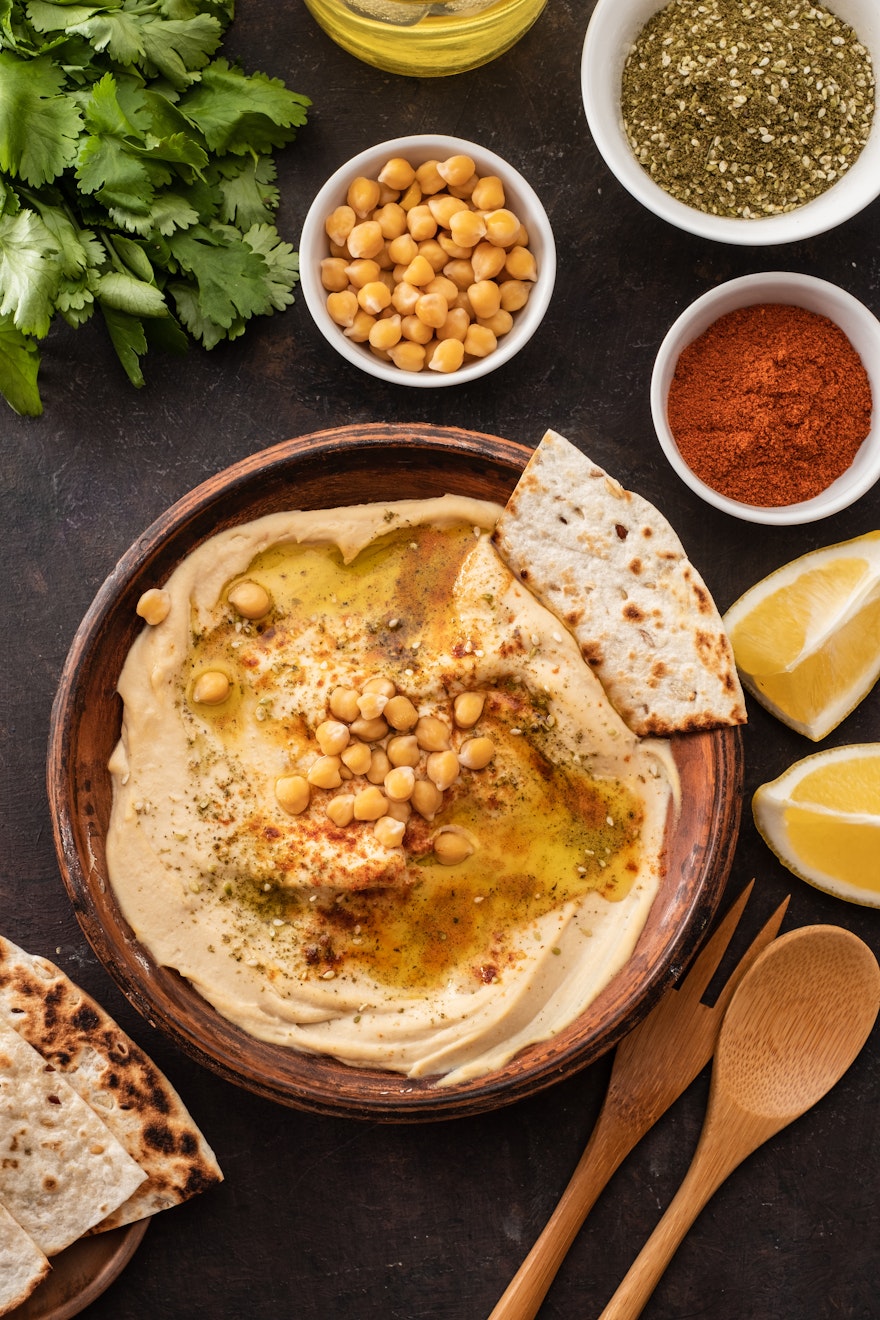
What is hummus made of?
Hummus is made of chickpeas, tahini (a type of Sesame paste), garlic and olive oil. Lemon juice and salt are also commonly found among hummus ingredients.
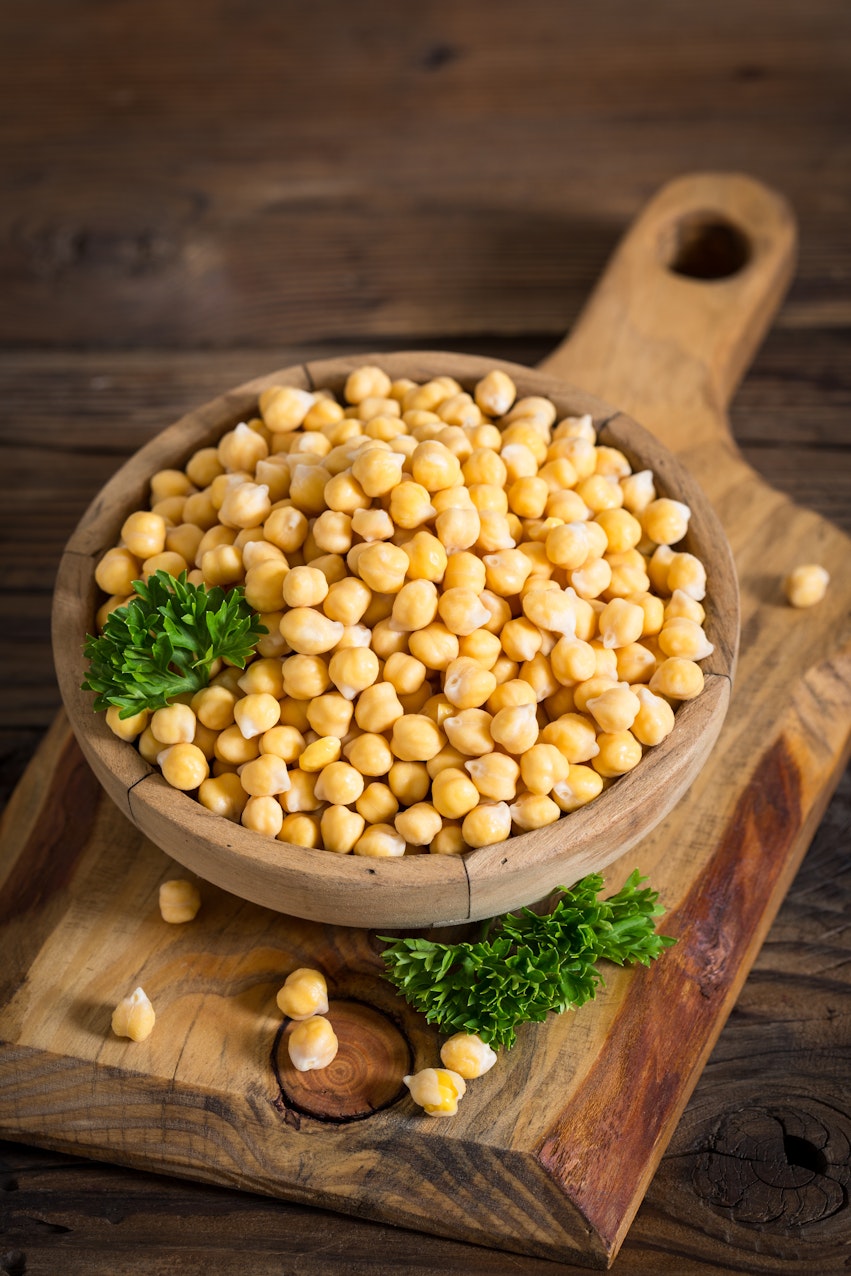
Some varieties of hummus are flavoured with ingredients such as beetroot, red pepper, carrot and pumpkin.
Is hummus good for you?
Yes, hummus is good for you - full of fibre, manganese, copper, folate, and iron. It contains plenty of healthy, unsaturated fats and antioxidants.
However, ingredients such as tahini and olive oil are high in calories, and so consumed in large quantities, hummus is quite fattening.
Top tip!
Some recipes will require skinless chickpeas - ignore it. This is not necessary and will not make the consistency of the hummus any smoother.
What does hummus taste like?
Hummus is most recognised for its smooth, creamy texture and subtle earthiness from the chickpeas. The secondary tastes in hummus are a slight nuttiness from the Sesame in the tahini paste, tanginess from lemon juice, and bite from the garlic.
Is hummus vegan?
Yes, hummus is vegan and vegetarian. It does not contain any animal-derived ingredients.
Does hummus contain allergens?
Yes, hummus contains one of the 14 major food allergens - Sesame. One of the main ingredients in hummus is tahini, a paste made from seeds, a major allergen. Hummus is also made with chickpeas, a legume. Although chickpeas are not a major allergen, legumes can be a source of cross-reactivity for people with certain other allergies, such as Peanuts. You can find out more about cross-reactivity here.
Top tip!
For additional texture, mix in some loosely crushed, roasted or toasted chickpeas.
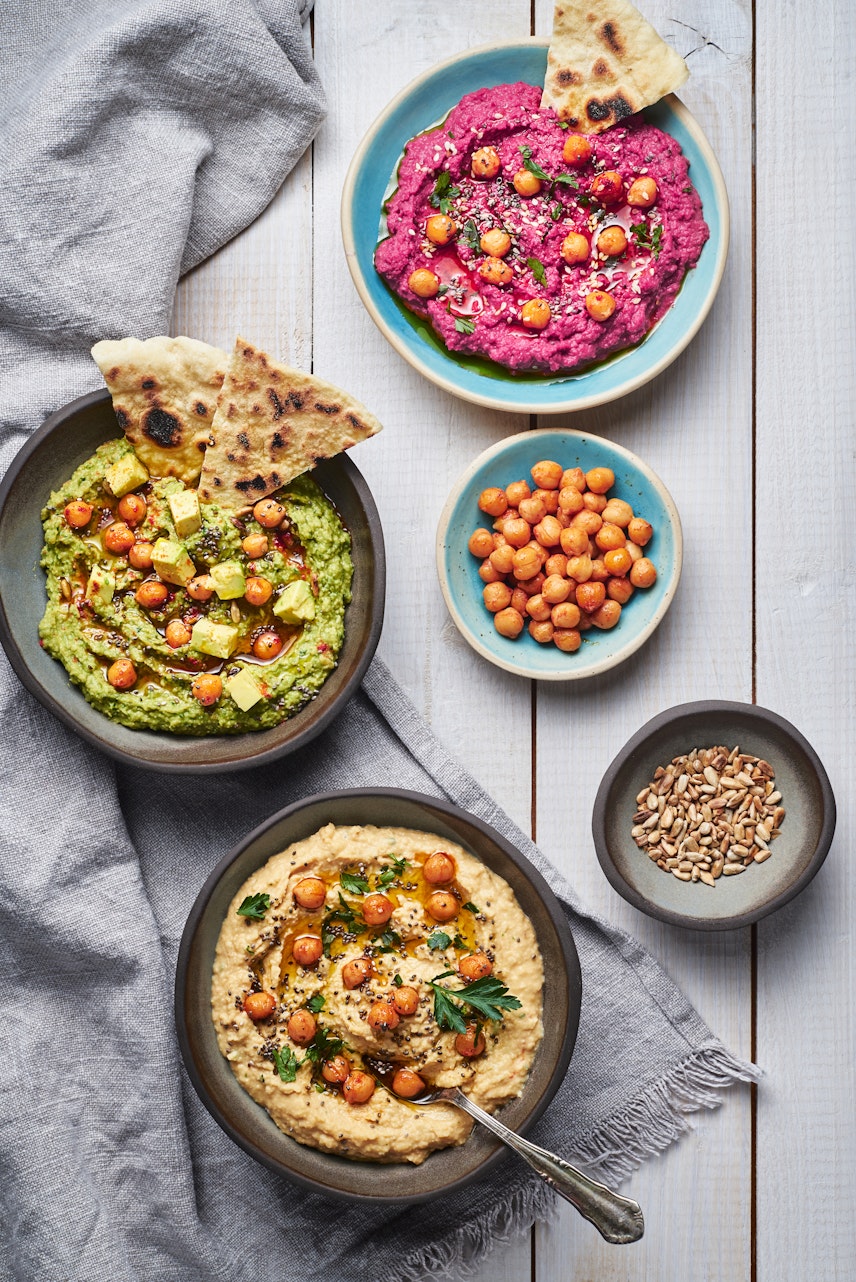
Where was hummus invented?
Whilst there is no universally agreed upon theory as to precisely when and where hummus was invented, general consensus traces it back to Syria, and indeed, a 13th-century cookbook attributed to the Aleppine historian Ibn al-Adim contains the earliest known mention of hummus. Since then hummus has been adopted into Mizrahi Jewish, other Middle Eastern, Turkish, and Greek cuisines, and for the past few decades has been massively popular across the West too.
Is hummus gluten-free?
Yes, traditional hummus is gluten-free. None of the ingredients in hummus are a Cereal containing Gluten. However, some mass-produced varieties of hummus are made with flour so it is important to always check the back of pack.
Top tip!
Sometimes shop-bought hummus can taste a little bland - add an extra teaspoon of tahini and a squeeze of lemon.
Does hummus need to be refrigerated?
Whilst hummus does not contain any meat or dairy ingredients, it is still best kept refrigerated when not being used - preferably in an airtight container.
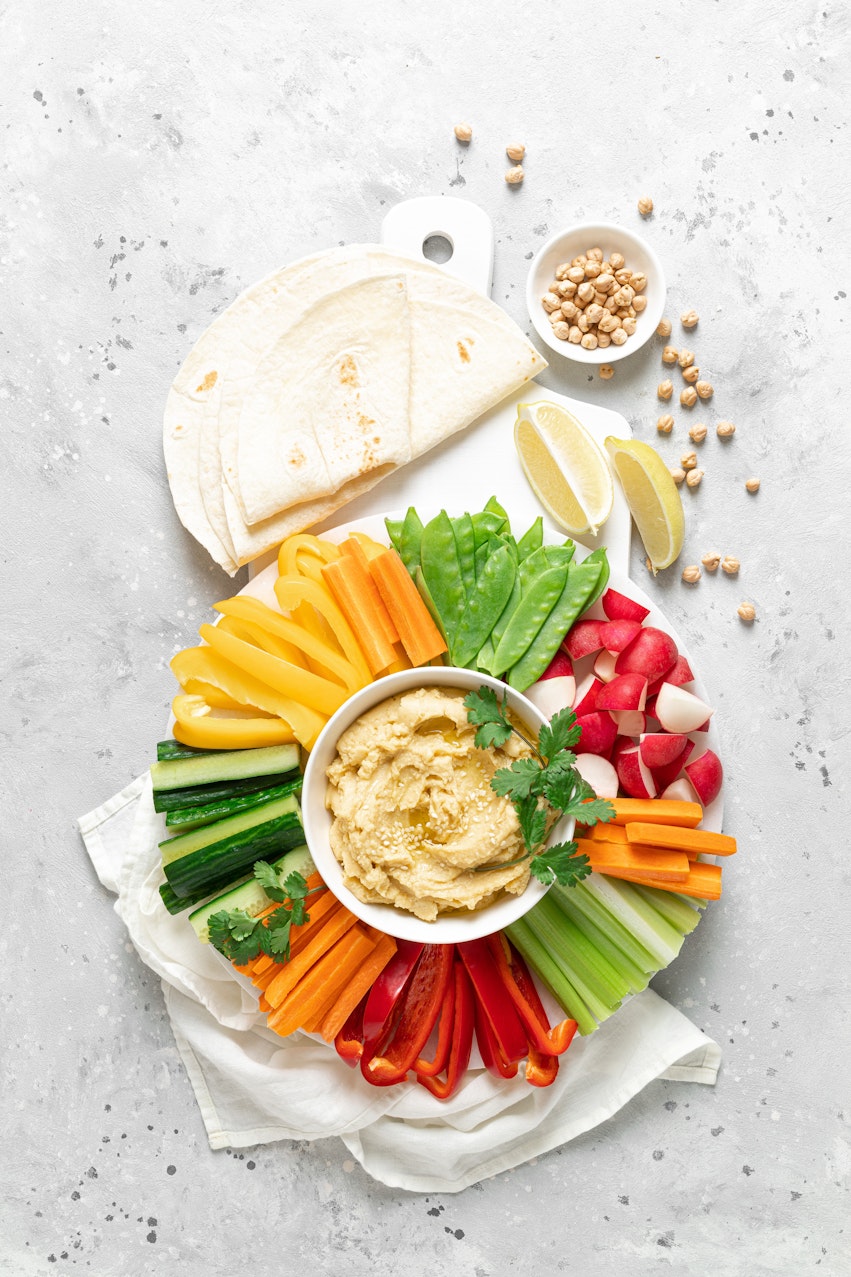
Once the hummus has been opened - even if it is kept in an airtight container, it should not be kept longer than a week or so, as it will have been exposed to airborne bacteria and microbes.
Hummus packaged in a tin can will have a longer shelf life, and can remain at room temperature in a cool cupboard until the best before date, when the quality will begin to deteriorate. You can find out more about use by and best before dates here.
What do you eat with hummus?
Hummus is traditionally eaten with warm pita bread. Tortilla chips and other crisps are also popular accompaniments to hummus when it is eaten in the UK, as well as crudites such as raw carrot sticks or celery. Hummus can be used a sandwich filling, and as part of a salad.
Top tip!
When adding salt to your hummus, try using a variety different to plain sea salt - such as smoked salt, garlic salt or Himalayan pink salt for a slightly different flavour profile.
Can you freeze hummus?
Yes, you can freeze hummus. However, after around 4 months of being frozen, the flavour of the hummus will begin to alter and the quality may deteriorate. Hummus may be a bit dry after defrosting - if this is the case add a tablespoon of oil and mix well.
